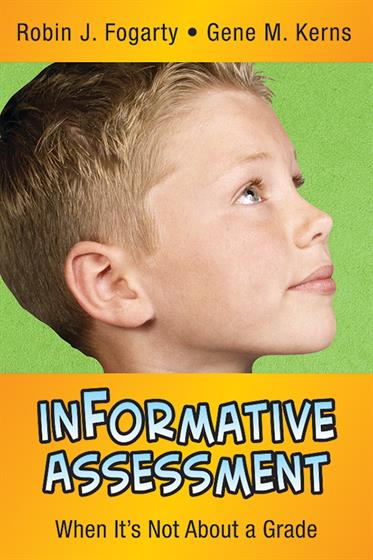Preface
Acknowledgments
About the Authors
Opening Quote
Introduction
Part I: Purpose/Goals
Part II: "A Suite of Assessments"
Part III: Background/Research
Part IV: Overview of the Book and Chapter Format
1. Routine Formative Assessments: All Day, Everyday-Flow
Teachings
Scene of Scenario (for Reader's Theater Activity)
Define, Describe, and Give Real-World Examples
Tools
Responders/"2Know!"
Lap Boards
Traffic Light Cards
Color-Coded Multiple Choice Cards
Tongue Depressors
Name Cards
Mr. Parnes' Questions
Mr. Pete's Questions
Techniques
Questioning Procedures
Pose Question
Allow Wait Time
Choose a Respondent Using a Random Method
Provide Some "Save Face" Option
HOT Questions
Delving
Woven Questions
Rhetorical Questions
Hands Up Only to Ask a Question Policy
Cooperative Learning (Informal)
TTYPA
Shoulder
Elbow
TESA
Wait Time
Equal Opportunity to Respond
Unpacking the Language of Standards/Tests/Instructions
Tasks
Tips
2. Reflective Informative Assessments: Many Days-Conversations
Teachings
Scene or Scenario (for Reader's Theater)
Define, Describe, and Give Real-World Examples
Tools
Agree/Disagree
People Search
Human Graph
Rubrics/Checklists (Criteria in Kid-Friendly Terms)
Journals
Little Book of Reflective Tools
Step Book
Cooperative Learning Roles and Responsibilities
Peer Tutors
PMI
Traffic Light Indicators
Student Portfolios
Blogs
Tear Share
Magic Book
Mrs. Potters' Questions
Ms. Poindexter's Questions
Techniques
Range Finding Questions (Prior Knowledge)
Hinge Point Questions (During Instruction)
Rubric Development With the Class
Use of Benchmark Papers
Descriptive Feedback
Reflective Questions (Metacognition)
Peer Assessment (Peer Editing)
Cooperative Learning
Interactive Conversations
Teacher - Student/Student - Teacher
Student - Student
Student - Self
Email Buddies
Comments That Reference Criteria, Instead of Grades
"There Are _ Wrong. Find Which Ones."
Focused Marking (One Aspect of Element)
Grading: Omit Zeros, Omit Averages, Require Students to Do Missing Assignments
Tasks
Tips
3. Rigorous Informative Assessments: Some Days - Philosophical Shift
Teachings
Scene or Scenario (for Reader's Theater)
Define, Describe, and Give Real-World Examples
Tools
Performance Tasks
Performance Checklists
Performance Rubrics
Grading Practices
Informative Grading
Informative Grade Book
Gray Area About Grade Books
Standards-Based Grade Books
Color-Coded Grade Books
Electronic Grade Book
Electronic Test Creation Software
Techniques
HOT
Inductive
Deductive
Performance Based
Tests, Test Questions, Test Analysis
Ungraded Practice Test
Developing Test Questions
Test Questions: Fat/Skinny (or Whale/Minnow) Questions
Test and Work Analysis: Examining Student Work
Summative Assessment as Informative Assessment
Philosophical Shift, Between Formative and Summative Assessments
How Can You Use a Summative Assessment in a Formative Manner?
Data
Item Analysis
Robust Distractors
Tasks
Application Activity
Tips
4. Closure
Attribution Theory (Dweck, 2007)
Afterword
Tomlinson Summary Points
References
Index



